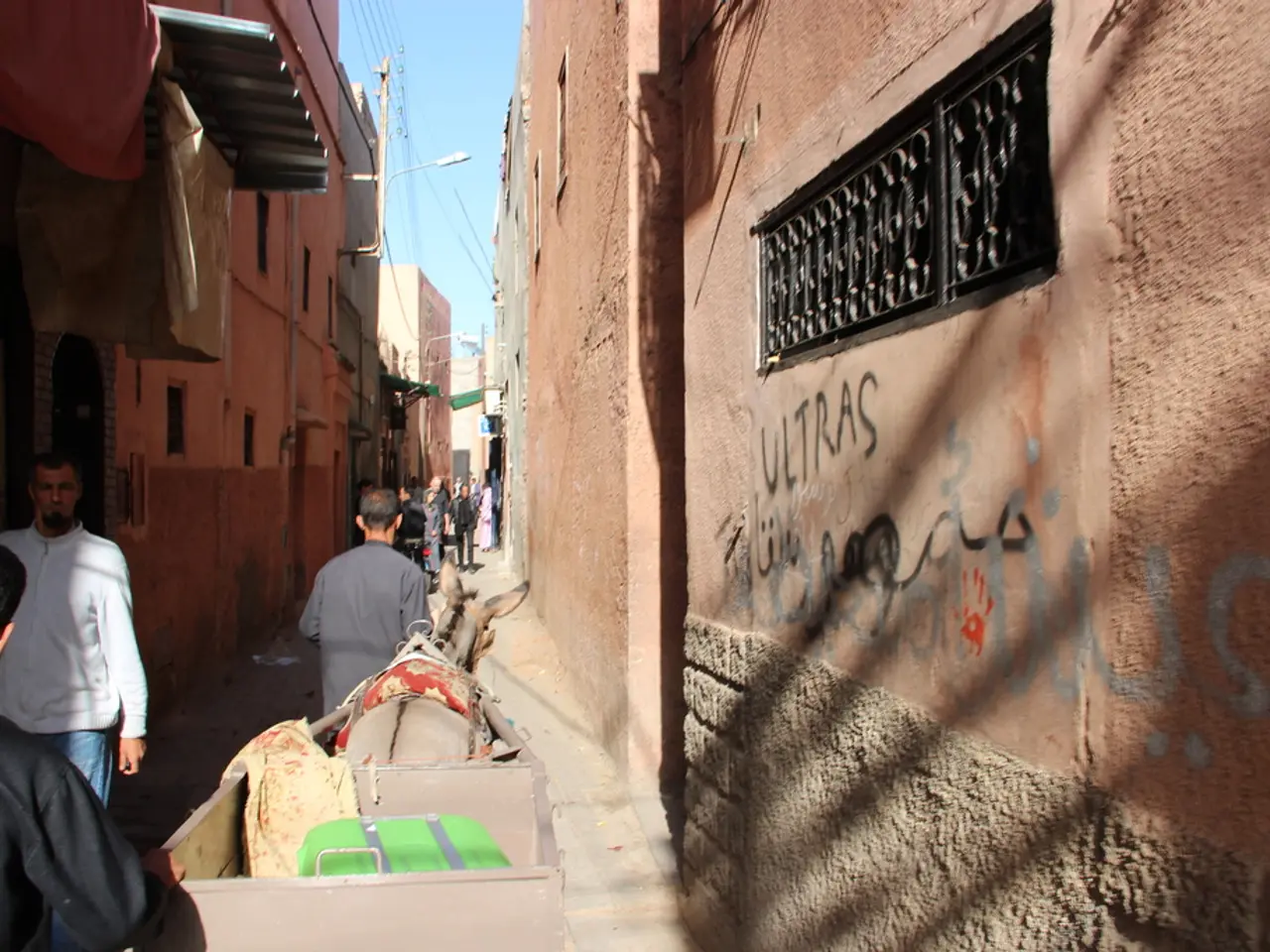Israel Impedes Delivery of Humanitarian Aid to Gaza Strip via Regulatory Measures - Israel Imposes Regulations, Preventing Aid Delivery to Gaza by NGOs
In recent times, humanitarian organizations like Oxfam and Doctors Without Borders have faced significant challenges in delivering aid to Gaza. The primary cause of these difficulties is the introduction of new restrictive regulations by Israeli authorities, which require international NGOs to register and share sensitive personal data about their Palestinian employees [1][3].
These regulations have led to several consequences for the aid sector. For instance, many NGOs have resisted the mandatory registration due to privacy and legal concerns, potentially leading to de-registration or refusal of authorization to operate [1][4]. As a result, since March 2025, Israeli authorities have denied requests from over 29 NGOs to send humanitarian aid, stranding millions of dollars of life-saving supplies at border warehouses [1][2][3].
The new regulations also impact the role of international NGOs in supporting local Palestinian organizations. Restrictions on INGOs break this cooperation, further cutting aid to vulnerable Gaza communities [1]. Moreover, the Israeli government's "GHF" scheme, a militarized food distribution mechanism, has replaced impartial NGO distribution. This system has been linked to violence and restricts NGOs' role in providing neutral humanitarian assistance [2].
The new NGO registration process also includes penalties for public criticism of Israeli government policies, adding another layer of complexity to the aid delivery process [1][4]. Ongoing hostilities and security concerns further compound these difficulties on the ground.
Amidst this dire humanitarian crisis marked by famine and medical shortages, the humanitarian community and multiple governments are urging Israel to reverse these restrictions and allow unfettered access for aid [1][3][5]. The blockade on aid shipments to the Gaza Strip, imposed by Israel at the beginning of March, was partially lifted at the end of May. However, organizations like Care and Oxfam continue to face challenges in delivering aid, with Care not receiving any approval for the import of aid since March [6].
The war between Israel and Hamas, triggered by a large-scale attack on Israel by Hamas on October 7, 2023, has added to the complexity of the situation. The new regulations include conditions for the registration of aid organizations, and a registration can be denied if Israeli authorities conclude that an organization denies the democratic character of Israel or supports "campaigns to delegitimize" the country [7].
Israel's actions have attracted increasing criticism, with the ongoing humanitarian crisis in the Gaza Strip being a major concern. The blockage of aid shipments, the use of the US-backed foundation GHF for the distribution of food and other aid, and the replacement of previously responsible UN organizations have been particularly contentious issues [8]. Controversy surrounds the GHF, as civilian deaths have occurred around its distribution centers in the Gaza Strip [9].
In response to the situation, Oxfam and Doctors Without Borders, along with other aid organizations, have signed a statement regarding aid shipments to the Gaza Strip [10]. The Israeli government ordered new regulations for foreign aid organizations working with Palestinian authorities in March [11]. As the situation continues to evolve, it is crucial that all parties work towards ensuring the safe and effective delivery of aid to those in need in Gaza.







